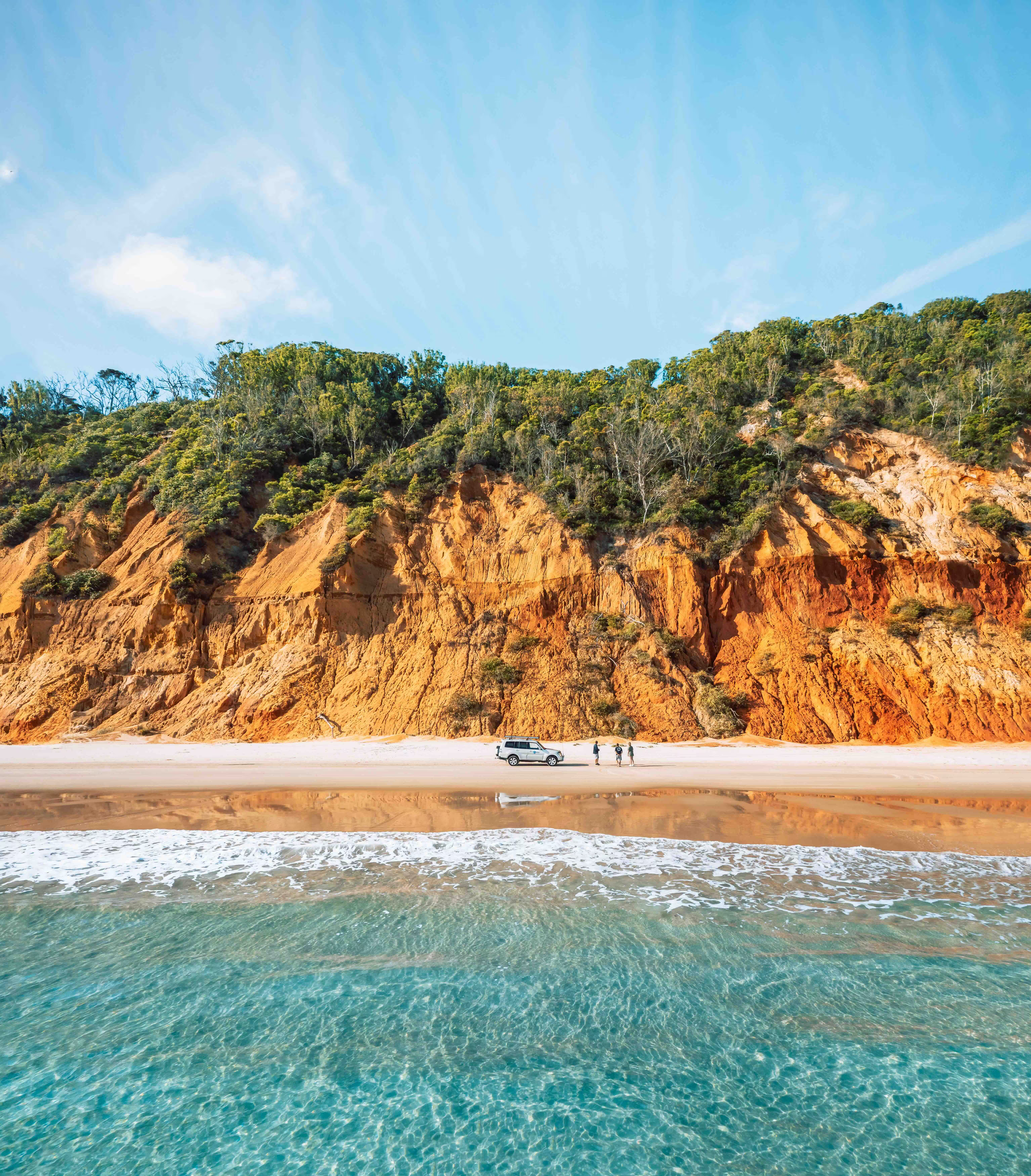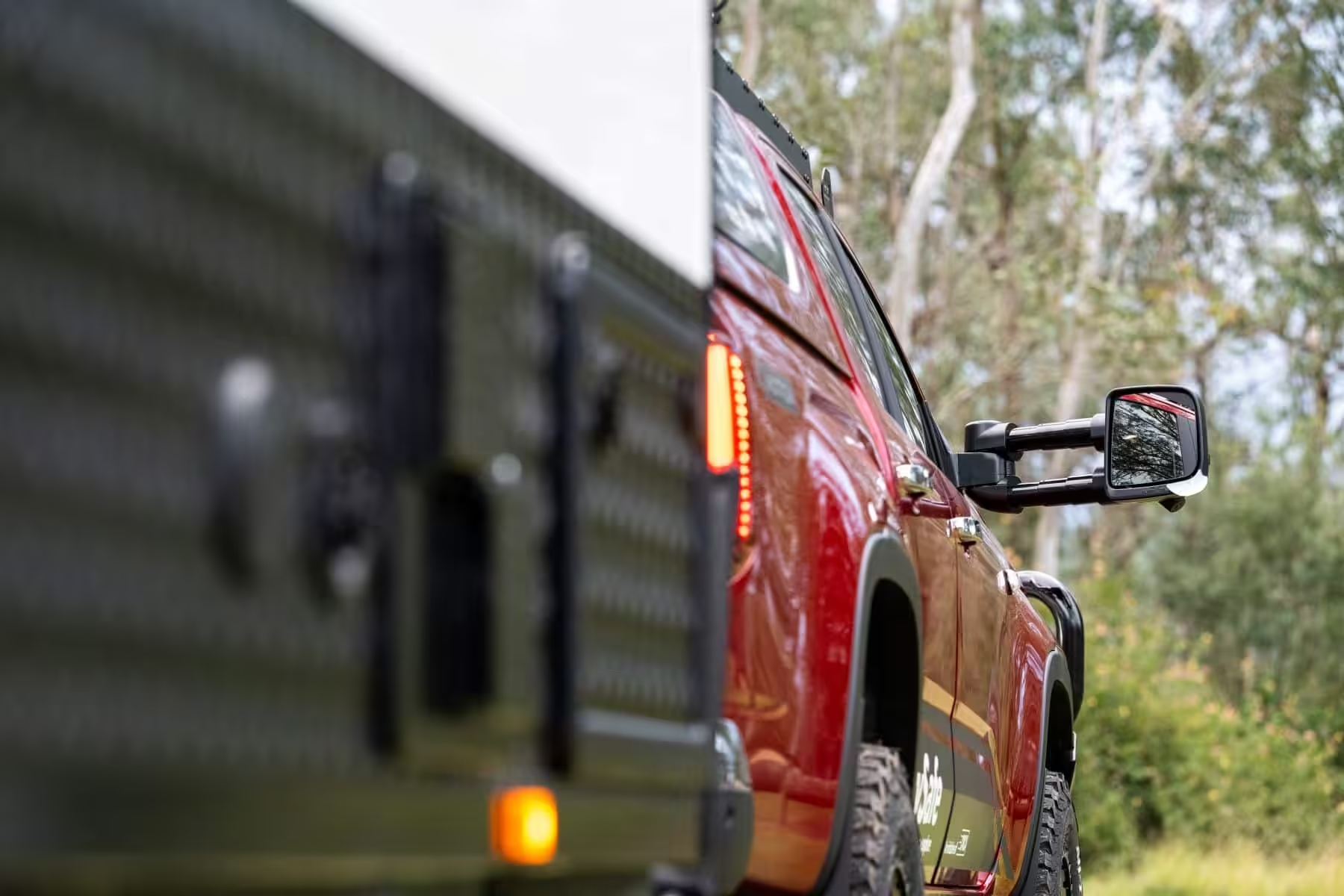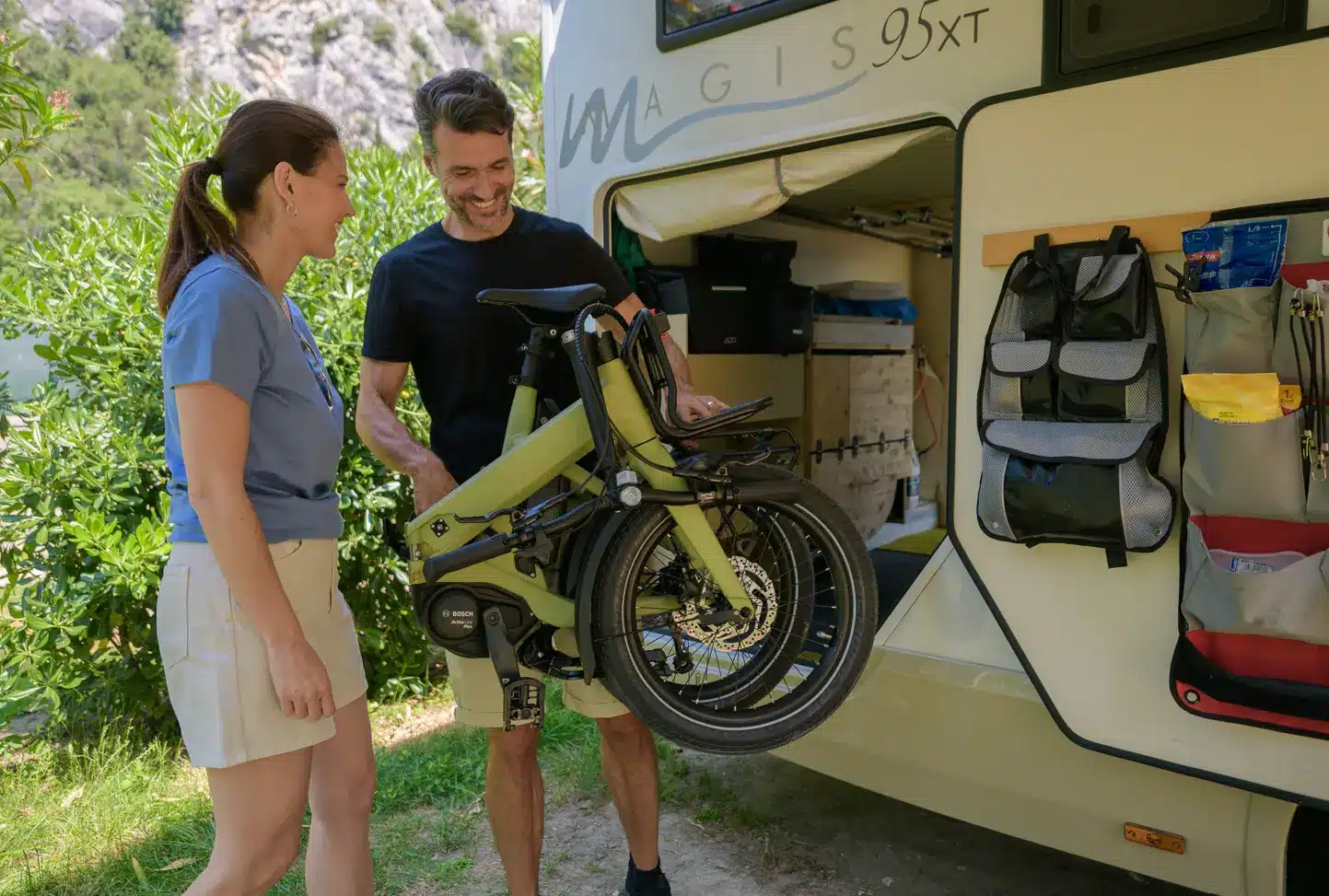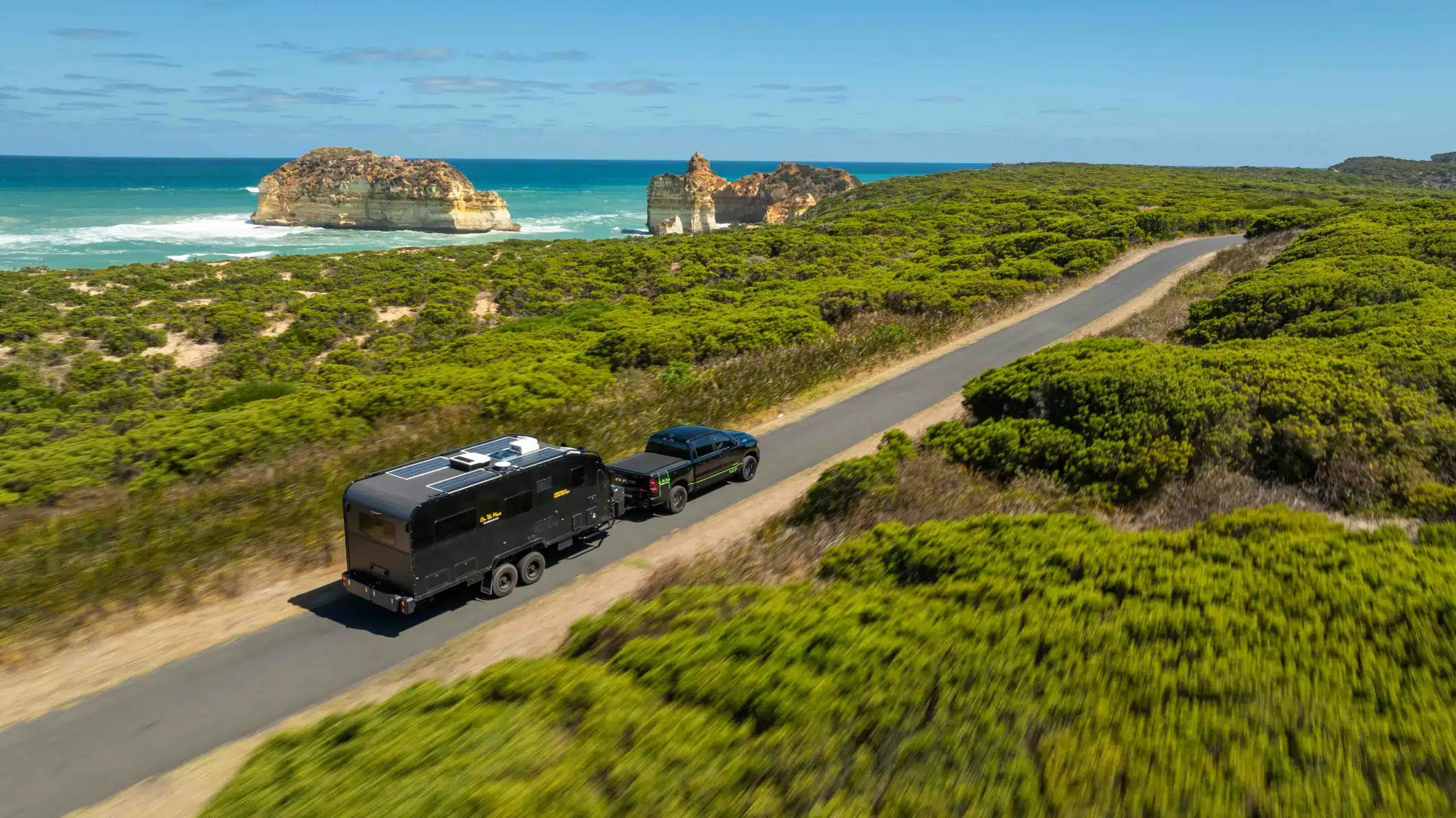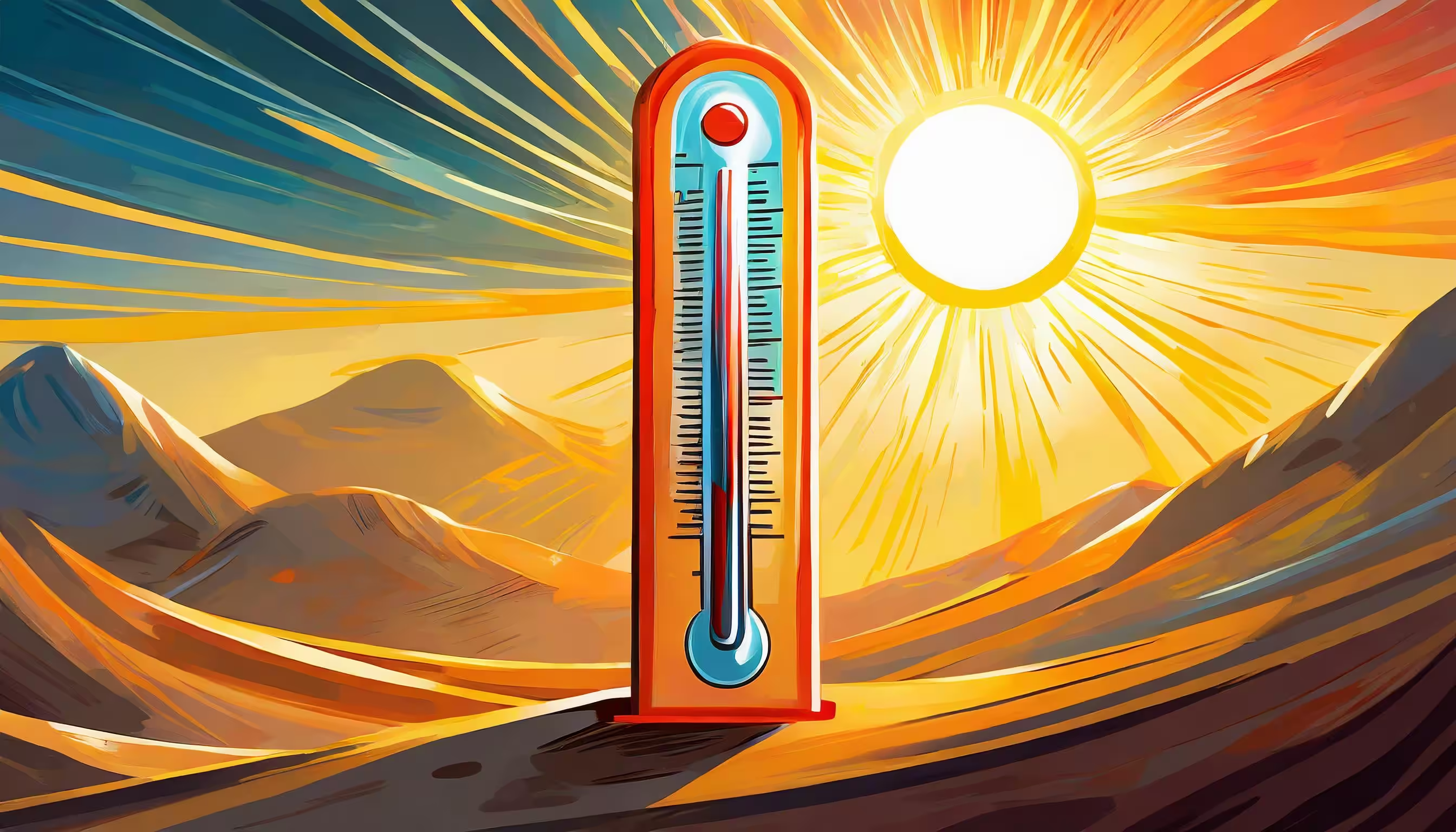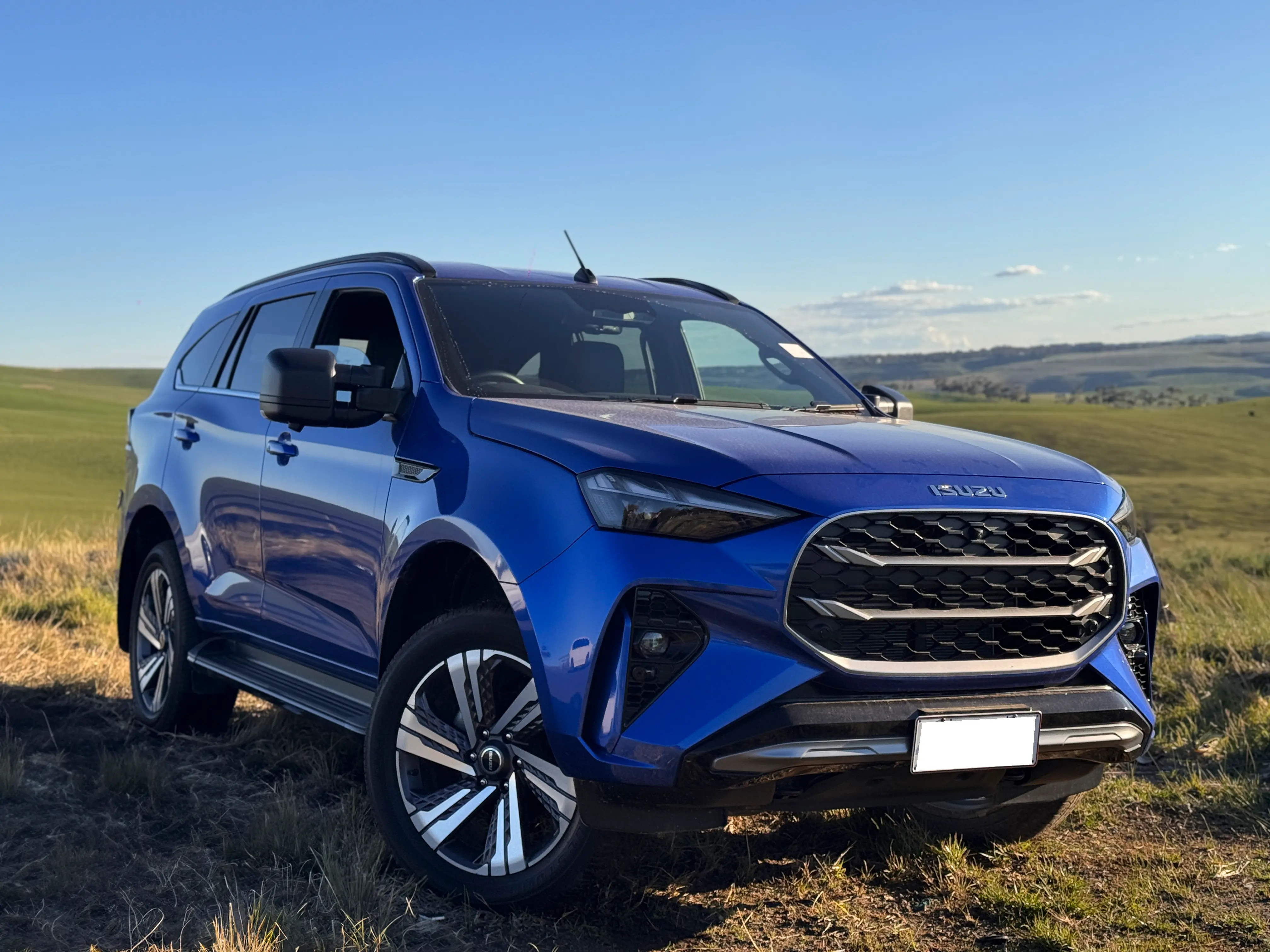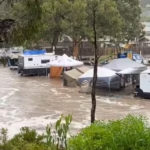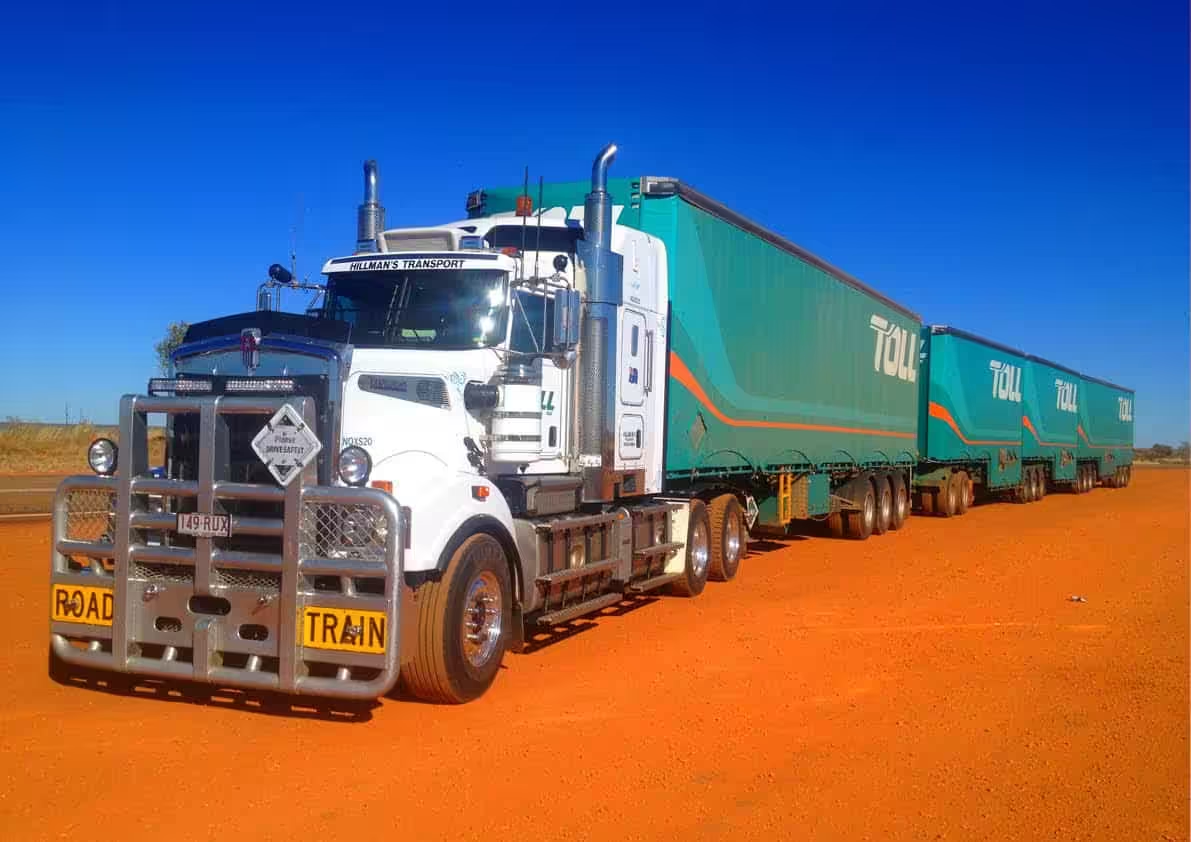
Words: Bruce Honeywill and RV Daily
Truck drivers are the real road warriors of this big brown country. Long after your big lap is done, they’ll still be out there beating the bitumen. When you drive a 130-tonne truck across the length and breadth of Australia for a living, you see it all. The good, the bad and the downright dangerous. Here are four things that get under truckies’ skin that you need to stop doing.
Parking in truck rest areas
A truck parking area isn’t a free camp where you can scrimp on caravan park fees. They are designated rest areas for truck drivers who don’t have the luxury of parking up in town. For a truckie, the roads are their workplace and these rest areas are their staff quarters – a place where they can sleep and recuperate.
Truck driver Charlie Keene drives a 53-metre, four-trailer road train and talks about the frustrations of trying to pull into a truck rest area hogged by caravans. On an overnight journey in outback Queensland, he describes having to bypass about four truck parking bays on a 160km stretch between Kyuna and Winton because they were overrun with caravans.
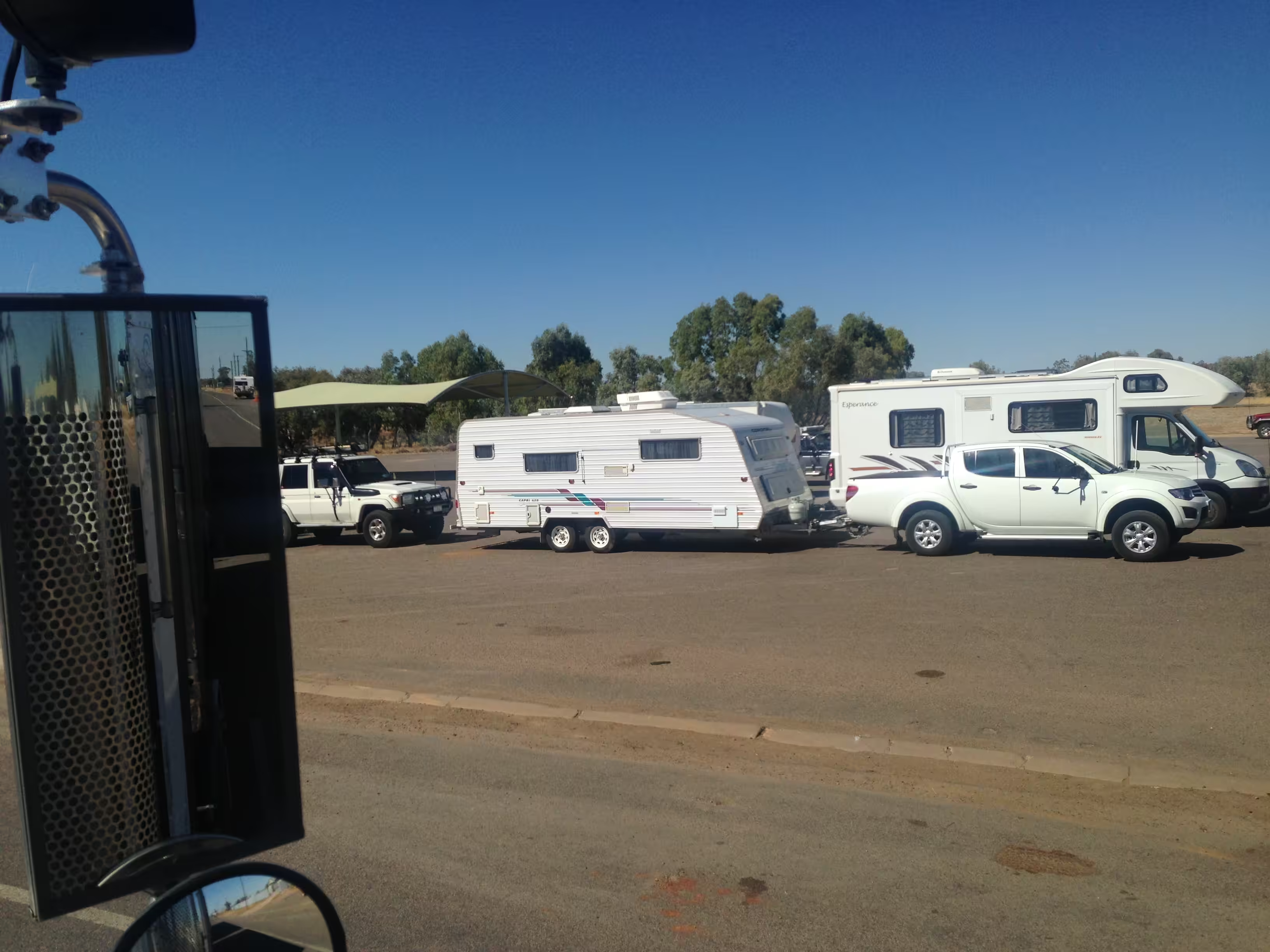
“It was about three in the morning, I was stuffed, tired,” Charlie says. “The pullout 20km south of Kynuna was full of caravans, I slowed but the last caravans were parked sideways across the entrance. I got up to speed again but was feeling pretty bloody wobbly. The next one was packed with caravans. I pulled up on the road with hazard lights going and ran around the truck, jumped up and down on the spot. Kept driving and eventually got my rest at Winton.” Charlie reckons his driving capability was diminished to about 25 per cent simply because he couldn’t get 20 minutes shut-eye to recharge.
For Charlie’s sake, use a public rest area next time you are looking for a free camp, not a truck parking bay reserved for road trains.
Jabbering on the two-way
How would you like it if you worked in a shopping centre and two shoppers decided to have a chinwag over the PA during your shift? The conversation – peppered with expletives – oscillates between roadkill, a beer inventory and the dire need for more firewood. Meanwhile, you need to use the PA because an emergency is unfolding and the public needs to be informed. Scenarios like this often play out on the roads when caravanners forget a UHF Radio is a critical communication tool, especially for truck drivers.
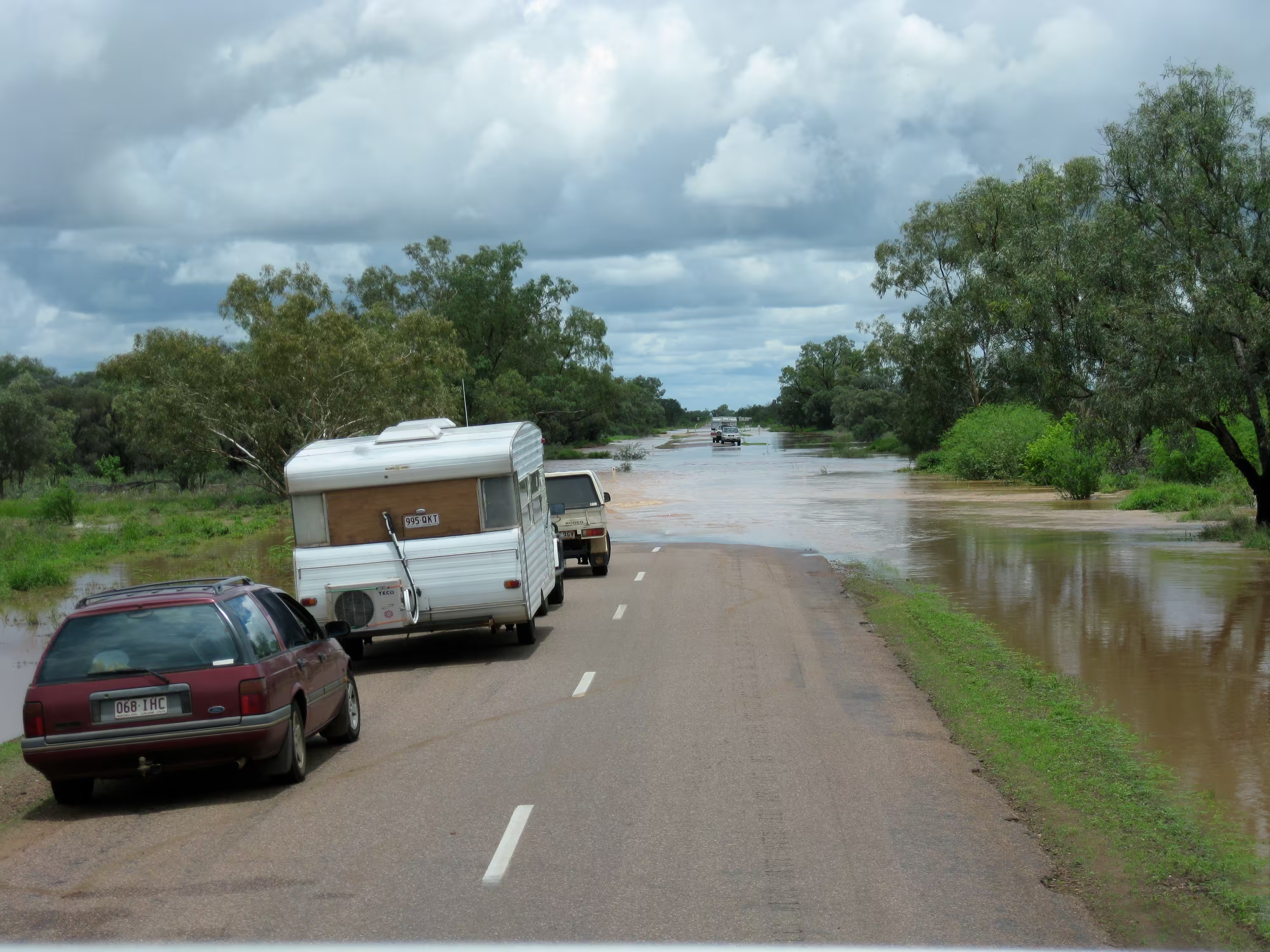
Lindsay Davies drives a big Western Star from Katherine, in the Northern Territory. He pulls a low-loader, or float, used for hauling heavy machinery, usually in a wide-load configuration. He’s a patient bloke but people larking on the radio gets his goat. “Channel 40 is for serious use,” Lindsay says. “The escort driver needs the channel to tell approaching traffic that a wide load is coming, and you’ll get a couple of old mates in vans chatting about how to best cook the barra tonight or the price of fuel at Dunmarra.”
Sure, truckies are guilty of misusing Channel 40 too, and all road users can do better. Switching to a less frequently used channel is a good start. “And caravanners could use the radio to let me know when they want to pass so I can give them room. We don’t bite,” Lindsay says.
Having all the gear and no idea
News flash. You don’t need a special licence or any heavy-vehicle training or accreditation to tow a caravan. But you should. Getting behind the wheel of a heavy 4WD pulling a 24ft caravan is like riding a six-tonne missile. At a minimum, caravanners should enrol in a professional towing course.
A truck driver must undertake a complex and staged licence process, do dangerous goods refresher courses every two years, and have regular medical checks. A caravanner, by comparison, can spend a lifetime in the city driving a small automatic runabout and, on retirement, set off in a 15-metre rig without any training or licensing provisions. And, according to truck drivers like Lindsay and Charlie, their inexperience shows.
There is no suggestion that truck drivers are angels. We all have the horror story of a speeding or tailgating truck, and there is no excuse for this behaviour. However, statistically, accidents involving trucks on a per-kilometre basis are way lower than the national average for motor vehicle accidents.
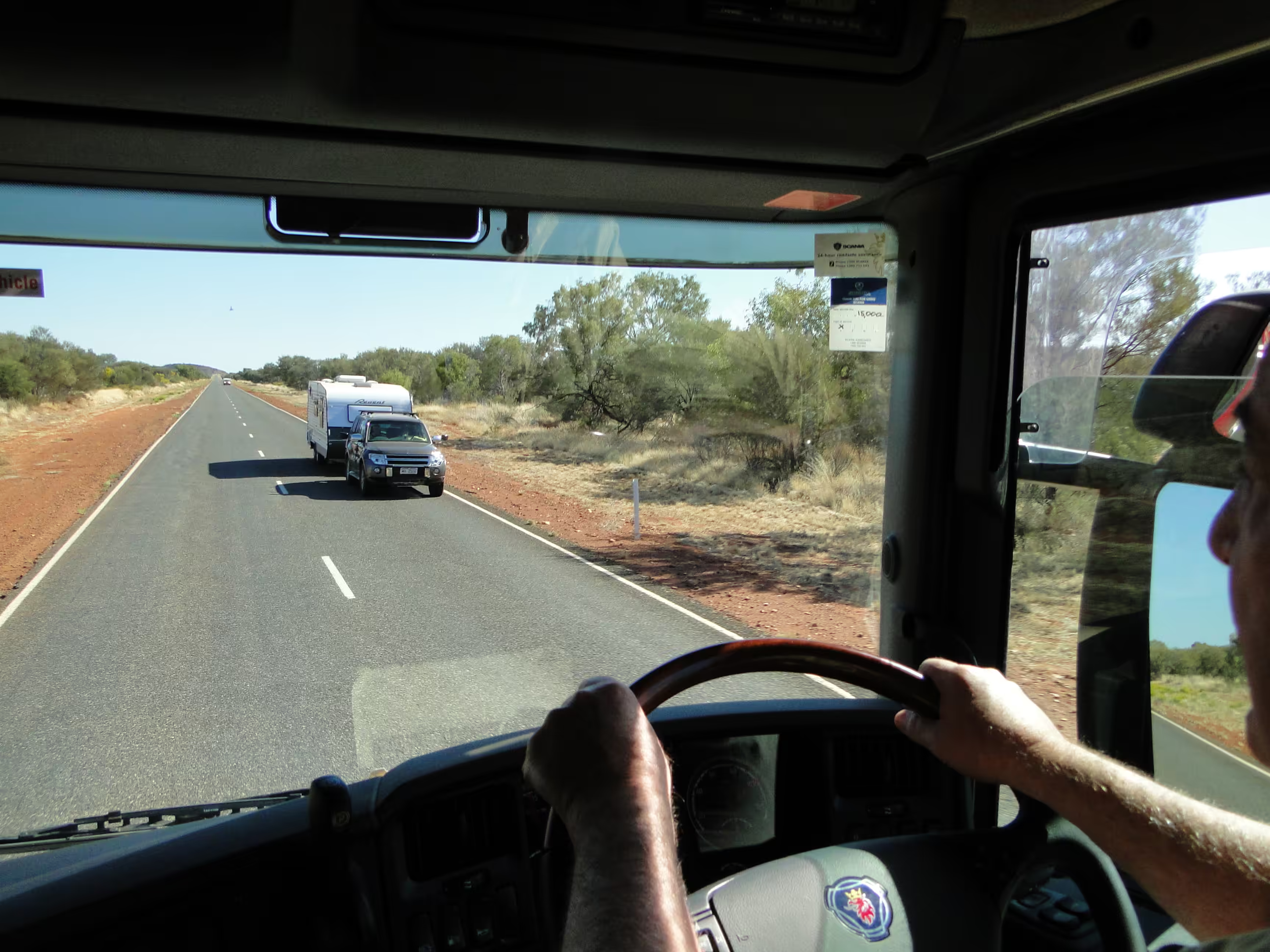
Driving on the go slow
The other big pet hate truckies have with caravanners is speed. And it’s not what you think. Many of the big road trains on outback roads have a maximum speed limit of 90km/h (or 100km/h in the NT). A caravanner might choose to sit on 90km/h too. However, 90km/h set on a car’s cruise control is probably only 86km/h in real terms. This is how car manufacturers set the speedometer. A truck, on the other hand, would likely have their speed set at a true 90km/h. Big deal, what’s the difference, you ask? Well, a five-kilometre-an-hour differential means an extra hour in a truck driver’s shift. The extra time could make the journey illegal under fatigue management laws. And a road train cannot always pass a caravan safely when there is a small speed differential.
The answer? Find a sweet spot in the mid-90s that provides safety and efficiency and there will be days on outback roads when you never see a truck going in the same direction as you because you are running with the flow of traffic. If you are a really cautious driver, the alternative is to slow to 80km/h and give way to other vehicles when they attempt to pass.
Most truck drivers and caravanners go about their daily journeys in harmony. But it’s always helpful to spare a thought for the men and women traversing the country in big trucks on gruelling 14-hour shifts. Mutual respect goes a long way to increase safety on our roads.


